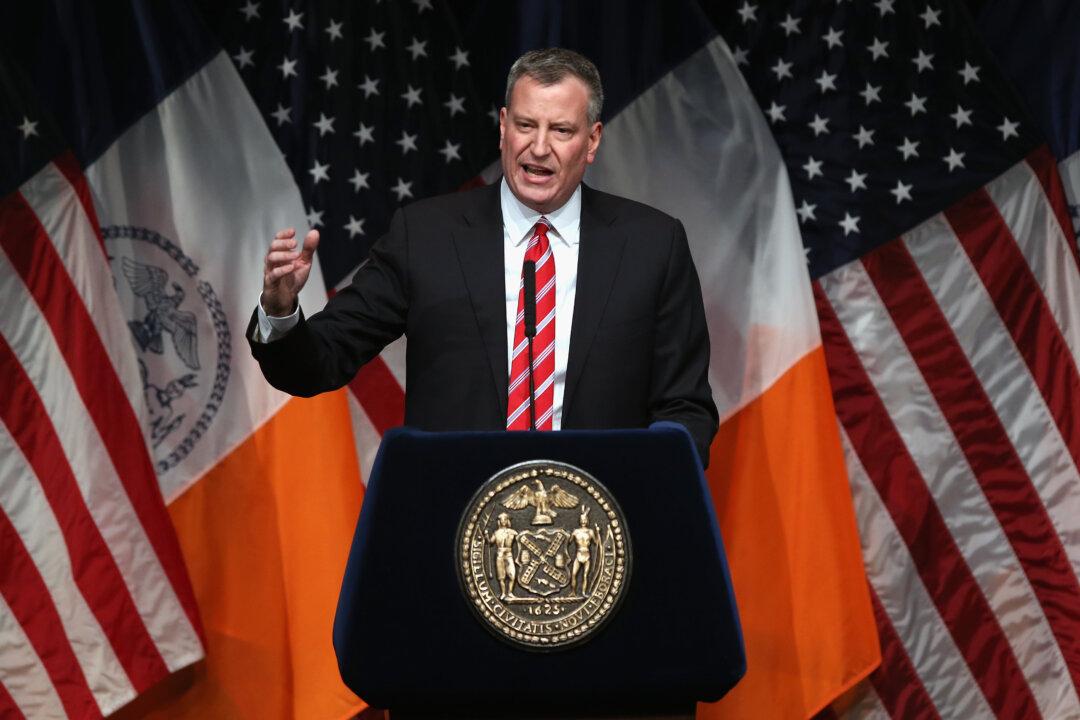NEW YORK—Mayor Bill de Blasio added another item to his Albany wish list Monday, announcing that next week he will call on the state Legislature to give him the power to raise the city’s minimum wage.
De Blasio is already pushing a proposal in Albany to raise taxes on wealthy New Yorkers to pay for universal prekindergarten. The pre-K plan has already received resistance from Gov. Andrew Cuomo and Republicans in the state Senate.
But resistance to raising the minimum wage may be even stronger. Cuomo reached a deal last year with the Legislature to raise the minimum wage statewide to $9 by the end of 2015. A representative for Senate Republicans said that the party is unlikely to revisit the minimum wage issue this session.
Nevertheless, de Blasio has a historic precedent in his favor—incoming New York City mayors have had their wishes granted in Albany on more than one occasion.
Former Mayor Michael Bloomberg secured mayoral control of the school system upon taking office, and former Mayor David Dinkins got approval in Albany for his Safe Streets, Safe City crime reduction initiative.
De Blasio won the mayoral election with 73 percent of the vote, a larger margin than either Bloomberg or Dinkins.
“Next week, we will ask Albany to give New York City the power to raise the minimum wage in all five boroughs,” de Blasio said in his State of the City speech at LaGuardia Community College Monday.
“In the process, we will send a powerful signal to the people of New York—that we honor work, and that we are committed to making work pay.”
De Blasio’s announcement comes amid a nationwide wave of Democratic support for higher wages. President Barack Obama vowed to raise wages for federal contract workers via an executive order in his State of the Union speech.
In the city, fast-food workers in pursuit of higher wages joined nationwide protests several times over the last year, and airport workers staged their biggest rally yet last month. In the days following Obama’s speech and the airport worker rally, Patrick Foye, the executive director of the Port Authority of New York and New Jersey, ordered airlines to raise wages for workers making less than $9 an hour by $1.
Tale of Two Cities
Raising the minimum wage is one of many equalizers de Blasio aims to employ to address what he calls an income inequality crisis in New York City. During his speech Monday, the mayor reiterated his key inequality-fighting promises to build 200,000 units of affordable housing, expand paid sick leave to 500,000 New Yorkers, and provide a living wage for people who work for city-subsidized employers.
De Blasio started his speech by talking about the recovery of the city’s financial sector amid a less bright economic outlook for the city’s lower and middle classes. He pointed out that 46 percent of city residents live at or near the poverty line.
“Because the truth is, the state of our city, as we find it today, is a tale of two cities—with an inequality gap that fundamentally threatens our future,” de Blasio said.
“It must not, and will not, be ignored by your city government.”





